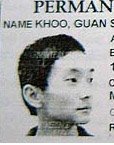Wag The Dog (1997)
Brainstorm an old shoe
Barry Levinson's political satire is an incisive observation of improvization and brainstorming. In the beginning of what I believe to be Act 3 of the screenplay, the hot-shot movie producer (Dustin Hoffman) orders his "I'm going to get drunk" songwriter (Willie Nelson) to write an advertisement jingle, a tune that refers to an old shoe. After a few indignant mumblings, the songwriter picks up a guitar, a fellow musician & begins to jam out a new anthem. Playing off of one another the two musicians gradually construct the melody to the theme song of the movie producer's next device - his follow up to the fake war engineered for TV & propagated via the US media - that will continue the theatrical wool pulled over the eyes of the American public. This scene of music composition summarizes the main theme in "Wag The Dog".
"Wag The Dog" was released during my sojourn of undergraduate college, but my first viewing occured 8 years later in a time history will remember as the post Cold War & post Berlin Wall age of terrorism & the politics of fear. The film, however intuitive or serendipitous depending on one's viewpoint of the filmmakers' insight or luck, is still relevant to news headlines today and its humor, very much alive. The plot revolves around a high-level US government problem solver (Robert De Niro) who hires a movie producer to create fake footage of a foreign conflict that will, with the coordinated assistance of the US press secretary and spokespersons, distract the American viewing public from the President's apparent indiscretion with a young female performer. According to the production notes on the DVD, the film's release virtually coincided with the publication of the Clinton-Lewinsky sex scandal that mirrors the film's over-arching plot. So, with the help of these skillful spin-doctors, the government declared war on alleged Albanian terrorists forcing yesterday's news headlines into the obscurity of page 21 or so.
The film does not expose the American public as media fetishists, but instead focuses on the adept organization and creativity of a political machine. De Niro & Hoffman play the multimedia equivalent of the "Taylor machine" from Capra's "Mr Smith Goes to Washington". Whereas Capra shows both sides of the political arena, via James Stewart's righteous rookie doing battle with crooked conspirators sustained by Claude Rains' dishonest senator, Levinson's cynical behind-the-scenes spoof has no boyscout in sight. There are no external forces capable of stopping these 21st Century media manipulators, except themselves.
Though the film is an undisguised contrivance with a resolution that is consistent with the screenplay's narrative structure, the quick ending will probably keep the film from it's potential for greatness along the same veins of Kubrick's "Dr Strangelove". Without revealing the plot, it is sufficient to say that our morally uninhibited twosome ends quite suddenly in self-destruction. Still, its humour & wit is undeniably sharp in a film that often boils down to a dynamic 2-character play; the narrative does not take off until the initial interview upon De Niro's "Connie" arriving at the tanning-bed wing in the mansion-palace of Hoffman's Stanley Motss. The twosome had an agreeable exchange that went something like this: "a movie producer... it's like a plumber: if you do it OK, nobody notices, if you fuck up, it gets full of shit". The most alluring aspect of "Wag The Dog" lies not in its realistic portrait of a political back-room, but in the realism of logical conclusions made as a result of intelligent problem-solving.
IMBD Link - http://us.imdb.com/title/tt0120885/
